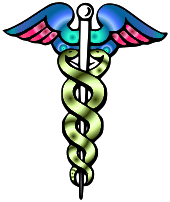DC to require medical providers have LGBTQ cultural competency
 This past Tuesday the Council of the District of Columbia unanimously and with little fanfare passed B21-168, the LGBTQ Cultural Competency Continuing Education Amendment Act. When signed by Mayor Muriel Bowser, he district will be the first jurisdiction in the nation to require LGBTQ cultural competency training for all health care providers.
This past Tuesday the Council of the District of Columbia unanimously and with little fanfare passed B21-168, the LGBTQ Cultural Competency Continuing Education Amendment Act. When signed by Mayor Muriel Bowser, he district will be the first jurisdiction in the nation to require LGBTQ cultural competency training for all health care providers.
The bill sets a modest but needed floor for such training by requiring any health care professional who is required to receive continuing education to include at least two credits of LGBTQ-related clinical or cultural competency training.
Although LGBTQ people make up about 10 percent of the population of the district, most healthcare professionals receive little or no training regarding the particular health issues these communities face. For transgender people, finding accepting and knowledgeable health care can be especially challenging. While the district has made substantial efforts to clarify that transgender people should have coverage for medically necessary transition-related care, finding knowledgeable health care professionals who can provide such care is difficult at best.
While this measure will not solve LGBTQ health care disparities by itself, it will certainly make a difference for LGBTQ people living or receiving health care in the district. Over time, this new law and others like it will help improve and standardize LGBTQ health care for both patients and providers.
During the hearing on this bill, we heard truly heartbreaking stories from LGBTQ residents about mistreatment they experienced at the hands of medical providers.
In particular, our transgender friends and neighbors face disrespect and misunderstanding in medical settings, and this bill will continue our work to correct this serious problem.--David Grosso, DC Council member
The bill had faced opposition from the Medical Society of DC, which complained that “no matter how well-intentioned”, politicians should not be “determining what physicians ought to be taught”, adding that the “carrot of professional responsibility” could be an effective alternative.

